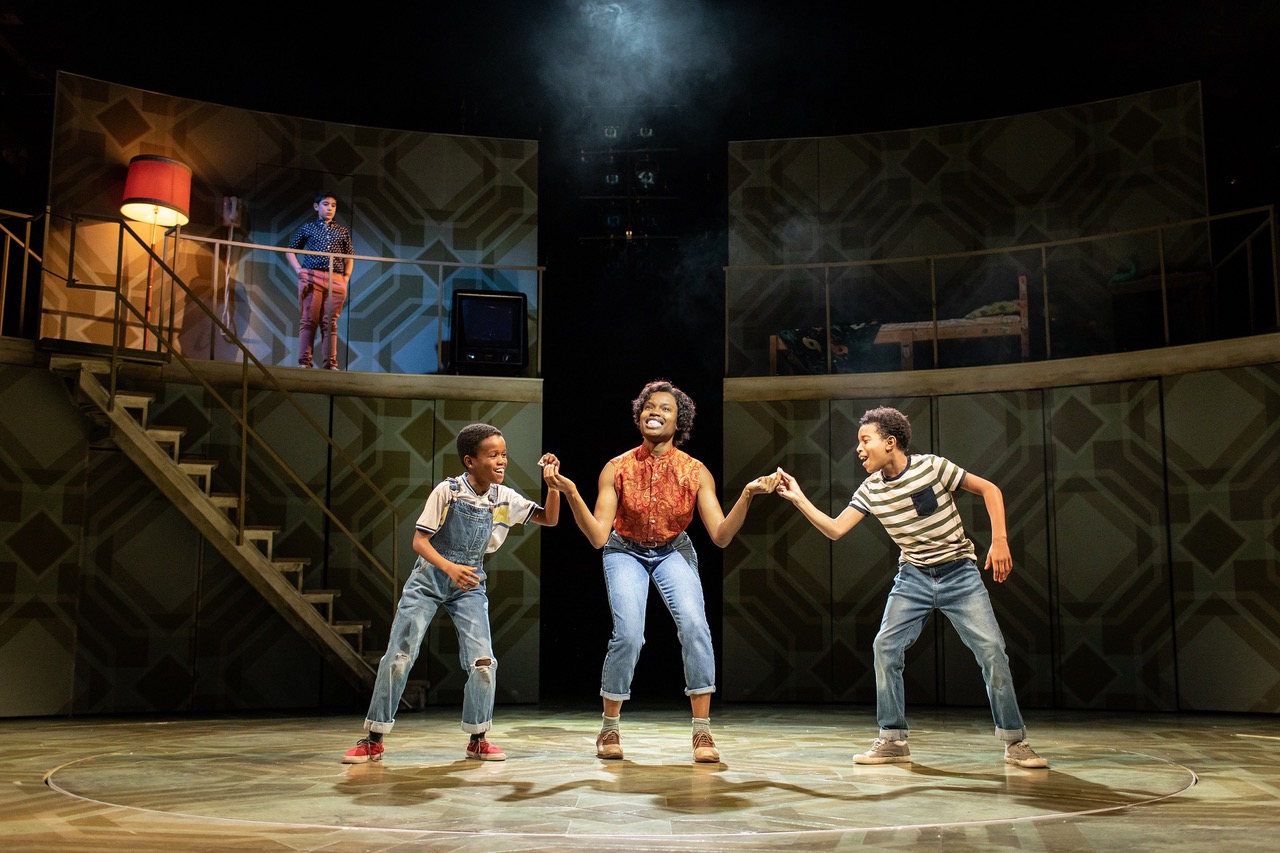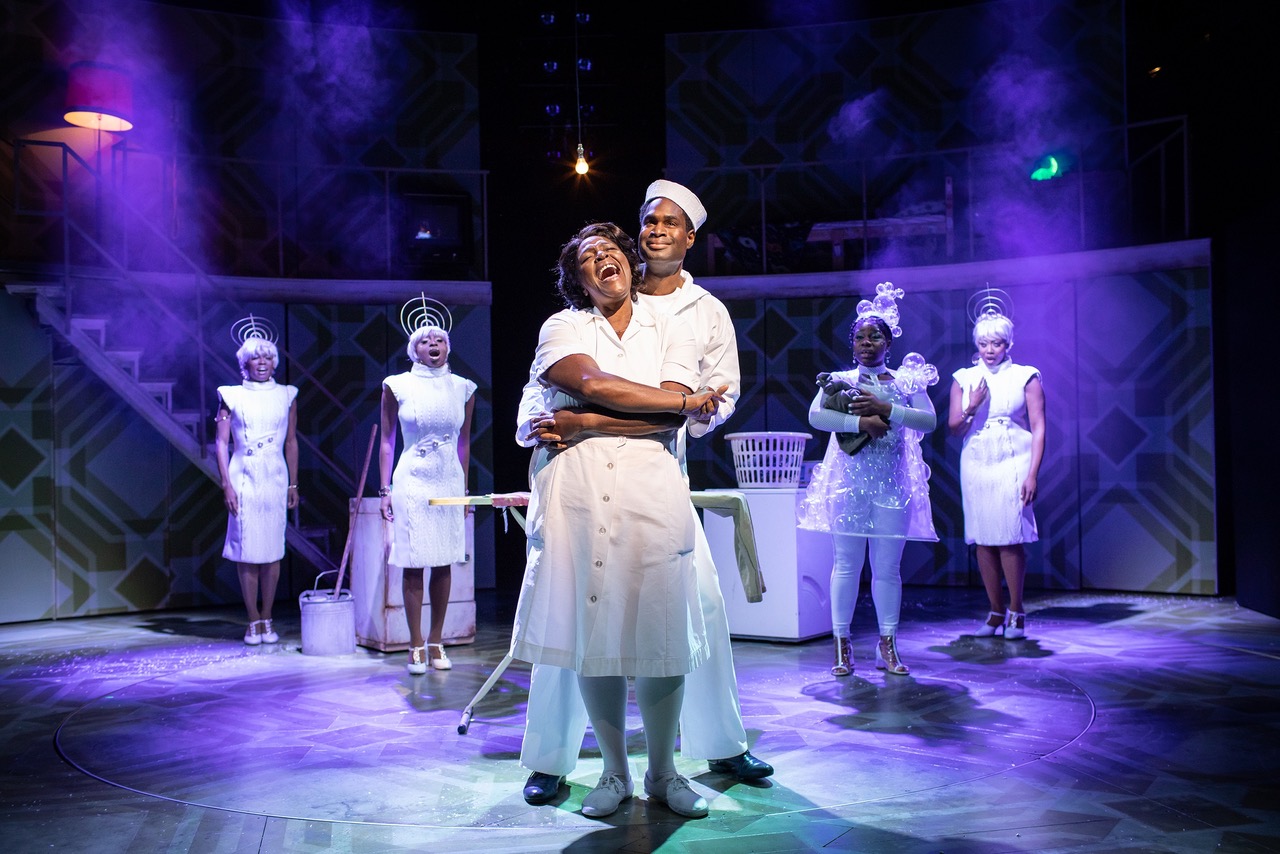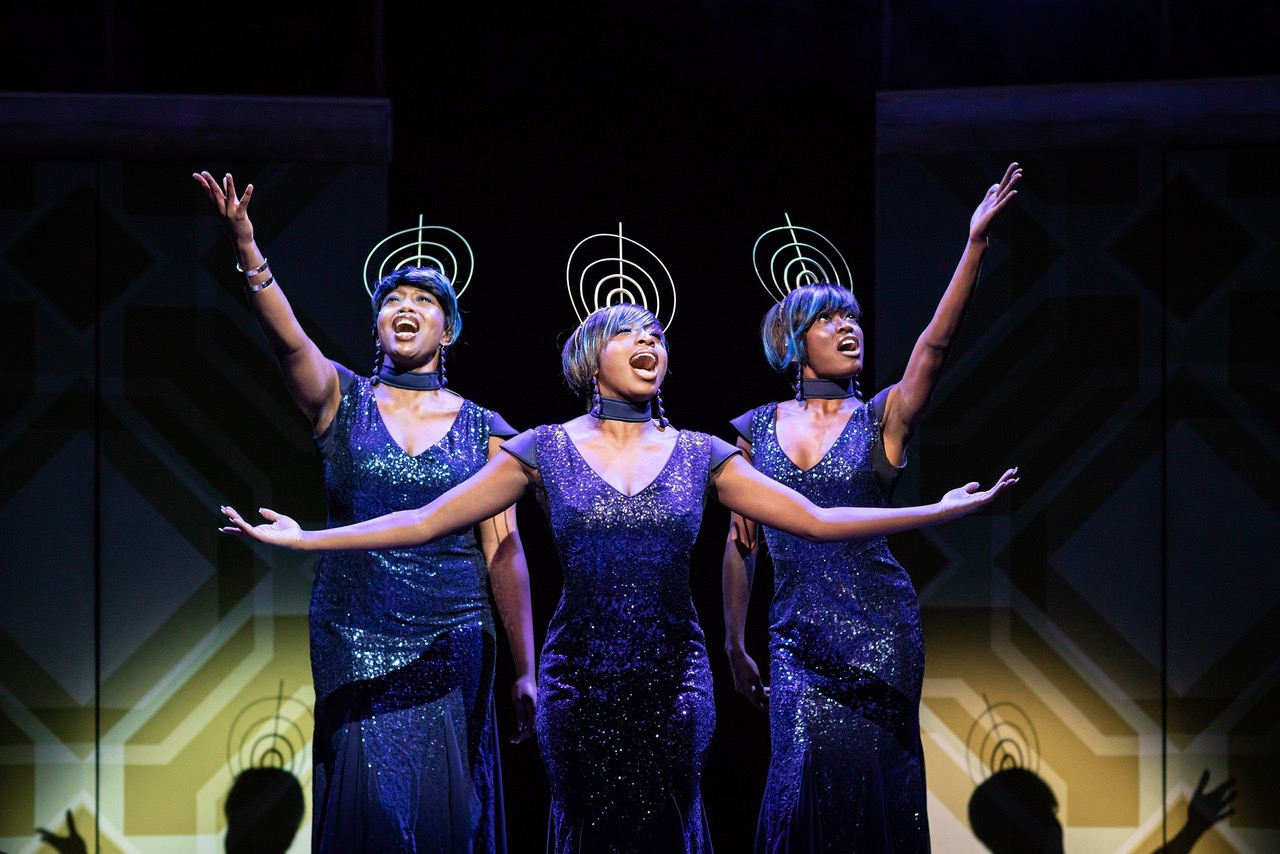Following a sold out run at Hampstead Theatre, Tony Kushner’s Caroline Or Change arrives at the Playhouse Theatre for a West End run that places it firmly in the spotlight and there’s a swirling sense of razzle and dazzle in this revival.
The real stand outs are the performances, with Sharon D. Clarke’s immense depiction of Caroline soaring heights and plumbing depths of raw emotion
Based loosely on Kushner’s life, Caroline, or Change is set in Louisiana in the 1960s where Noah is struggling with the death of his mother, and his father’s remarriage to her best friend. He spends his time with their maid, Caroline, who works in the family’s basement. Caroline, who has a family dependant on her, faces a moral dilemma when a novel opportunity to fund her family presents itself.
Audiences expecting a toe tapping feel good time are on entrance immediately reminded of the sensitive subject matter of race relations and civil rights as they are faced with a bare stage save for a Confederate memorial statue in the centre of Lake Charles, Louisiana. The statue is later vandalised for the second half but by then we’ve already been served a slew of serious, in the shape of songs and stripped-down emotional exchanges, which tread a fine line between saccharine and splendid. Yet there is immense lift and levity in Kushner’s lyrics.
Coupled with some thrilling special effects, costumes and flights of fantasy everything is brought together beautifully but the real stand outs are the performances, with Sharon D. Clarke’s immense depiction of Caroline soaring heights and plumbing depths of raw emotion, considered physicality and vocal verve. Her final solo has my hairs standing and I’m sure it was the same for even those at the back who must’ve been able to feel every note and hang on every word as I did.
The performances are the glue that keeps this sometimes-excessive show together. Naana Agey-Ampadu is brilliant as Daisy Moffett, another maid who embodies the change that Caroline resists. Naana was also fantastic in one of my highlights of 2018, Pericles. Here she again exhibits that star wattage once more. Abiona Omonua who plays Caroline’s daughter Emmie also had me hooked with her kinetic energy, embodying the fearless zest of youthful anger with heart and grit. The child actors also slay their way through their pivotal and not always playful scenes. Everyone really delivers and shines.
The show constantly raises and meets expectations
Some say that Kushner often tries to deliver more when less might suffice and I did feel that at times here. Plot points are mentioned and not developed, such as Caroline’s son being in Vietnam. Whilst this does add a shadow of anxiety to her life, it doesn’t impact the story in any significant way whereas the significance of JFK’s assassination is instrumental to much of the first act.
Because it’s a pure musical with almost nothing delivered via conventional dialogue, sometimes it’s difficult to digest the music, vocals or key information. However, this is a minor criticism as the show creates such a likeable and sympathetic character that you are indelibly rooting for her to find a source or sources of change that will thrust her into a state of happiness.
Yet what Michael Longhurst has done with the fusion of music, dance and song here is so impressive. Jeanie Tesori’s score soars with the soul and gospel you hoped to hear and even finds a way to fuse some Klezemer into it.
When it was finished a sense of sad irony came over me. Life in America was about to get darker, scarier and more uncertain with a litany of social, civil and political unrest that stained the nation and would’ve sent even more shockwaves and trauma into homes like the one Caroline works in and her own. It’s easy to fall in love with the show because it’s sensational but it’s also not hard to feel that there could’ve been more to its final message, something which would’ve delivered a knockout blow that relied more on its brains than its heart. Yes, there’s nothing wrong with that but the show constantly raises and meets expectations so leaving on such a high note felt a little like looking at the civil rights era through a soft focus where perhaps it could’ve brought into a sharper one.























![Sharon D. Clarke in Caroline Or Change, Playhouse Theatre [Credit Helen Maybanks]](https://www.afridiziak.com//wp-content/uploads/2019/09/1-Sharon-D.-Clarke-in-Caroline-Or-Change-Playhouse-Theatre-Credit-Helen-Maybanks.jpeg)
![Sharon D. Clarke in Caroline Or Change, Playhouse Theatre [Credit Helen Maybanks]](https://www.afridiziak.com//wp-content/uploads/2019/09/3-Sharon-D.-Clarke-and-ensemble-in-Caroline-Or-Change-Playhouse-Theatre-Credit-Helen-Maybanks.jpeg)




